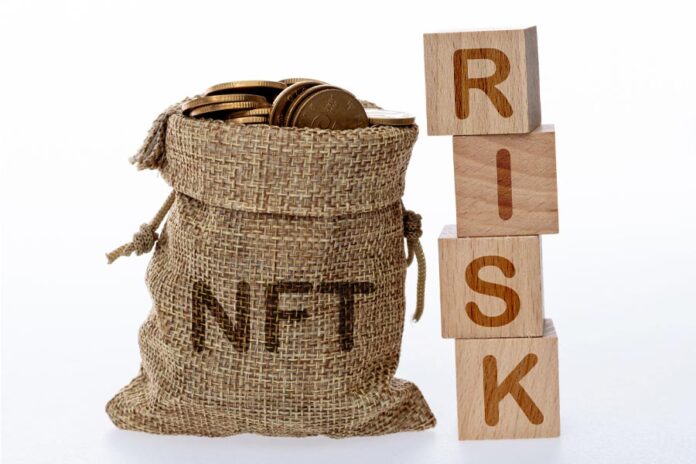A joint initiative aiming to prevent risks associated with non-fungible tokens (NFTs) was issued by the China National Internet Finance Association, China Banking Association and Securities Association of China on 13 April 2022.
The Initiative to Prevent relevant Financial Risks of Non-fungible Tokens is the first NFT-themed official document involving compliance since recent rapid development of NFTs in China.
The initiative is only a self-regulatory statement and not mandatory regulatory rules.
But considering the special status of the three associations as official industry self-regulatory organisations, to a great extent it still represents the regulatory attitude and trend of supervision.
Affirms positive role of NFTs and points out related risks. The initiative mentions that “China’s NFT market is getting increasingly hot in recent years”, and translates “NFT” into “非同质化通证” instead of “非同质化代币”. Not only does this give an official Chinese translation for NFT for the first time, but it also affirms the application of an NFT concept in China, and explicitly distinguishes it from cryptocurrencies (tokens, or “代币”), which are strictly prohibited.
It also defines an NFT as an innovative and distinct application of blockchain technology, and confirms it has a certain value in contributing to China’s digital economy, while promoting the development of cultural and creative industries.
It also points out that NFTs may be accompanied by potential risks of speculation, money laundering and other illegal financial activities.
Encourages innovation and uses NFTs to motivate the real economy. The guideline advises adopting a reasonable selection of application scenarios, and to standardise application of blockchain technology to give full capacity for the positive role of NFTs in promoting a digital economy.
It proposes that the value of NFT products should have a sufficient pricing basis, and a false high price deviating from the basic law of value should especially be prevented.
It suggests that the intellectual property rights of an NFTs’ underlying assets should be protected.
It requires truthful, accurate and complete disclosure of NFT product information so as to protect the consumer’s right to know, right of choice and right of fair trade.
Sticks to the “bottom line” of preventing financial risks. The initiative resolutely seeks to stop any financialisation and securitisation tendency of NFTs, strictly prevent the risks of illegal financial activities, and proposes six specific codes of compliance conduct:
-
- It stresses that securities, insurance, loans, precious metals and other financial assets should not be included in the underlying assets of an NFT – namely that NFTs must not be used in the issuance and trade of any financial products.
- It prohibits any initial coin offering (ICO) business in the distinguished form. More specifically, it does not allow anyone to weaken the non-fungible characteristics of NFTs through methods like dividing ownership or creating batches.
- It does not allow the set-up of any trading venues in violation of regulations to provide centralised trading (centralised bidding, electronic matching, anonymous trading, market maker, etc.), continuous listing trading, standardised contract trading and other services for NFT trade. From the expression of this point alone, it cannot be said that NFT platforms are completely prohibited. If NFT platforms follow the above-mentioned restrictions and do not use NFTs for any purpose of issuing and trading any financial products, they still have the opportunity to conduct normal NFT business – namely providing services related to the purchase of NFTs of the underlying digital artworks. In practice, to avoid the trend of financial speculation, many NFT platforms in China do not allow NFT secondary transactions, transfers or otherwise, nor allow the NFT purchaser to transfer it to others as a gift.
- It strictly prohibits the use of cryptocurrencies such as Bitcoin, ETH and USDT in pricing or settling NFTs. This is consistent with China’s current strict prohibitions on cryptocurrencies, where they do not have the same legal status as legal currencies and cannot be circulated in the market as currencies or pricing tools.
- It urges processing of real-name authentication for NFT issuers, buyers and sellers – and keeping customer identity information and issuance transaction records properly – while actively co-operating with anti-money laundering work. NFT platform operators should pay special attention to this point.
- It does not allow investing in NFT directly or indirectly, or providing any financing support for such investment. This should be understood as restricting investors from investing in NFTs as financial products for the purpose of financial investment profit, rather than forbidding general users to purchase NFTs for practical purposes, such as private artwork collection. In practice, many NFT platforms in China are operated as digital collection platforms and only allow individual users to register.
Tips to NFT consumers. Consumers are warned to establish a correct consumption concept and enhance self-protection, and consciously resist and stay away from illegal financial activities. The initiative also reminds consumers to report relevant illegal activities proactively and on time.
In addition, it is also worth mentioning that on the day after the launch of the initiative, in response to suggestions, the China Mobile Communications Association Metaverse Consensus Circle (CMCA-MCC) and the China Communications Industry Association Blockchain Specialised Committee (CCIAPC) jointly issued The Self-Regulatory Requirements on Regulating the Healthy Development of Digital Collection Industry. Both the CMCA-MCC and CCIAPC are social organisations under the guidance of the Ministry of Industry and Information Technology, and registered with the Ministry of Civil Affairs.
As digital collections are based on NFTs and the development is still at an early stage, with unclear value standards, the self-regulatory requirements mainly reiterate relevant requirements in the initiative and propose reasonable expectations.
In short, the initiative confirms the concept and development of NFTs in China – not only putting forward the code of conduct, but also defining the regulatory red line, which is of great significance.
The initiative also demonstrates that the current general attitude of regulators on NFTs is to prevent financialisation and securitisation, rather than prohibit the NFT itself.
This is good news for realisation of the cultural and artistic value of NFTs and will facilitate their development in a positive and healthy way.
Business Law Digest is compiled with the assistance of Baker McKenzie. Readers should not act on this information without seeking professional legal advice. You can contact Baker McKenzie by e-mailing Howard Wu (Shanghai) at howard.wu@bakermckenzie.com






















